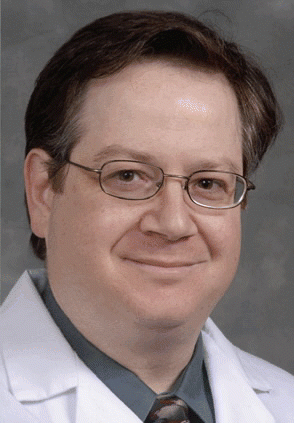Once the nerve has begun to be activated by the donor nerve, it appears to continue working for decades afterward, said Dr. Crumley. It usually takes from three to nine months for the voice to return to near-normal (this time frame may be longer for older patients). I have often found that the voice continues to improve-in quality or in expansion of pitch range-even years after surgery, added Dr. Goding.
Explore This Issue
January 2009Who Is Best Suited?
According to those interviewed for this article, a majority of patients with unilateral vocal cord paralysis would be eligible for the procedure. Because it is an open-neck procedure done under general anesthesia, laryngeal reinnervation is probably not advised in the very old or in patients with serious comorbidities. Still, Dr. Crumley noted that the procedure has been successful in people as old as 75, although these patients may experience longer delays in nerve growth. He also pointed out that for optimal results of the procedure, the ipsilateral vocal cord must be relatively normal.
 Like thyroplasty, adduction, or other techniques, we’re basically restoring the position of the vocal cord, and allowing the other vocal cord to contact that more efficiently and improve the voice.
Like thyroplasty, adduction, or other techniques, we’re basically restoring the position of the vocal cord, and allowing the other vocal cord to contact that more efficiently and improve the voice.
-Joel H. Blumin, MD
A Tough ‘Sell’?
The main advantage of reinnervation, sources agreed, is the potential for a near-normal voice. Another plus is that it uses no implants or other foreign materials. Indeed, this is often the deciding point for Dr. Blumin’s patients who choose to go with reinnervation after he discusses the various treatment options for unilateral vocal cord paralysis. People like that it’s natural, that it’s their body healing itself. And, they’re willing to wait the amount of time for the healing, he said.
And there’s the rub: Patients who receive injections or thyroplasty will notice an immediate voice improvement, whereas those who undergo reinnervation must be prepared to wait longer, he said. Some patients are not willing to delay their gratification. However, pointed out Dr. Crumley, injection of a temporary filler material (such as Zyplast collagen, Gelfoam paste, Cymetra paste, or Radiesse voice gel) can help bridge the gap between procedure and recovery of the voice. The injection, he said, usually wears off about the time that the reinnervation begins to work.
Dr. Crumley believes that resistance on the part of otolaryngologists may be one reason that the procedure is not performed more often. Recently, a head and neck surgeon pointed out to me that I’ve been proposing this procedure to the wrong crowd. Head and neck surgeons may be more comfortable with open procedures under general anesthesia than laryngologists, who tend to perform microdirect laryngoscopy, and have more office-based practices.
Leave a Reply